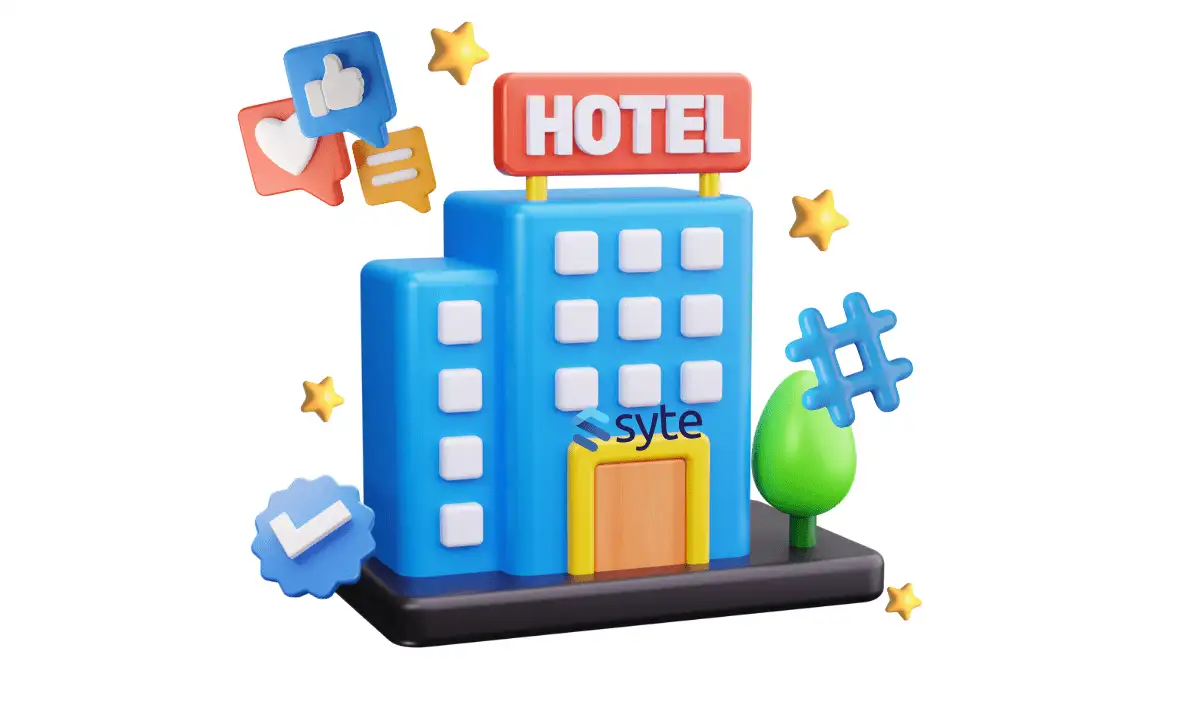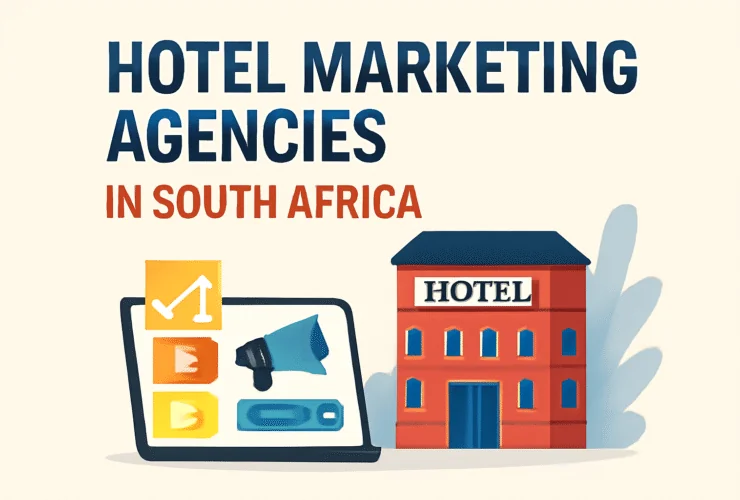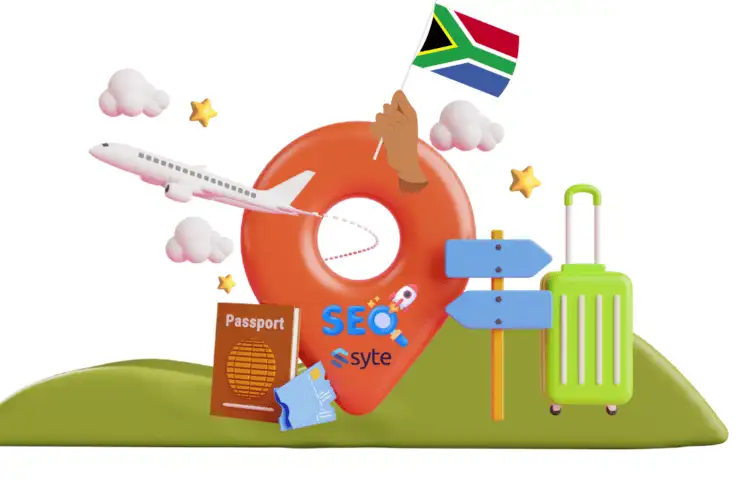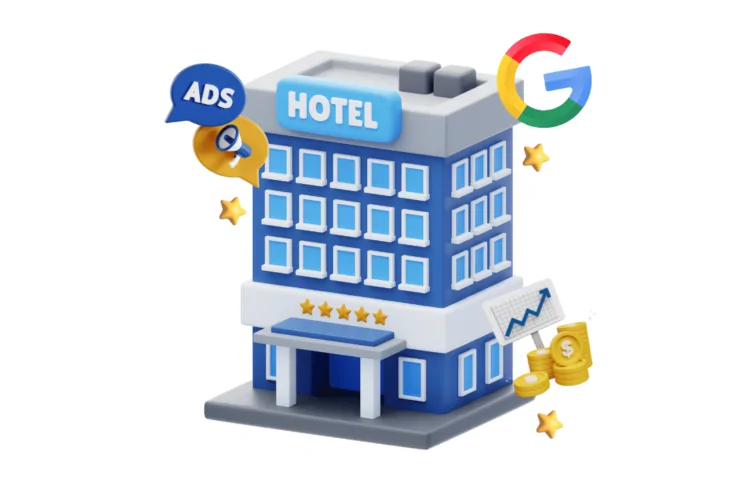Social Media Strategies for Hotels
In the tough world of hospitality, using social media well is crucial for hotels to attract and keep guests, build brand loyalty, and get more bookings. As we look towards 2025, it’s important for hotels to use the best social media strategies to stay ahead. This guide outlines the top strategies that will help hotels succeed in the digital world.
Understanding the Target Audience
The starting point for any successful social media strategy is understanding who your audience is. Hotels need to:
- Identify Potential Guests: Find out who might stay at your hotel, including their age, interests, and travel choices.
- Understand Preferences: Learn about the experiences they want, like luxury facilities, nearby attractions, or special guest stories.
- Tailor Content: Make content that connects with the audience, boosting engagement and encouraging bookings.
Understanding your audience helps you create messages that meet their desires and needs, leading to increased loyalty and satisfaction.
Platform-Specific Strategies
Each social media platform has its own special features and user habits. Hotels need to adjust their strategies to maximise their impact.
Instagram is great for hotel marketing because it’s very visual. To use Instagram effectively:
- High-Quality Visuals: Post beautiful photos and videos showcasing your hotel’s special offerings.
- Instagram Reels: Use Reels to reach a larger audience, as they are often boosted by the algorithm and don’t disappear after 24 hours.
- User-Generated Content: Encourage guests to share their experiences and collaborate with influencers to boost engagement.
Facebook allows for a variety of content sharing. Hotels should:
- Share Diverse Content: Post photos, videos, stories, and live streams to connect with guests.
- Run Targeted Ads: Use Facebook’s powerful advertising tools to reach specific groups.
- Engage with Live Videos: Host live streams for real-time chats and updates.
YouTube
YouTube is often overlooked but has strong potential for hotels. To leverage YouTube:
- Behind-the-Scenes Footage: Share exclusive content showing behind the scenes at your hotel.
- Promotional Videos: Create engaging videos that showcase your hotel’s unique traits.
- Storytelling: Use video storytelling to connect with your audience on a deeper level.
LinkedIn helps connect with potential guests and B2B influencers. Hotels should:
- Share Business-Related Content: Post company news, job openings, and industry insights.
- Highlight Core Values: Use LinkedIn to display your hotel’s mission and values.
- Connect with Influencers: Build relationships with industry leaders and influencers.
Pinterest is great for sparking inspiration in potential guests. To make the most of Pinterest:
- Create Impressive Boards: Curate boards that showcase your hotel’s amenities and local attractions.
- Use Relevant Keywords: Optimise your pins with keywords to drive traffic to your website.
- Inspire Travel Plans: Share content that assists guests in planning their trips.
TikTok and Short-Form Videos
Short-form videos are expected to dominate hotel social media marketing in 2025. To make the most of this trend:
- Engage with Short-Form Content: Create videos between 3 and 60 seconds that highlight your hotel’s unique experiences.
- Leverage Algorithm Favorability: Short-form videos are favoured by algorithms, increasing the chance of reaching a broader audience.
- Broaden Audience Reach: Use platforms like TikTok, Instagram Reels, and YouTube Shorts to engage with a diverse audience.
Emerging Trends and Best Practices
Several new trends and best practices are shaping how hotels use social media marketing.
User-Generated Content (UGC)
Encouraging guests to share their own experiences helps build trust and broaden your brand’s reach. To use UGC:
- Create a Branded Hashtag: Encourage guests to use a specific hashtag when sharing their experiences.
- Offer Incentives: Provide rewards or recognition for guests who share content.
- Amplify Reach: Share UGC on your official channels to reach a wider audience.
Immersive Technologies
Using technologies like Virtual Reality (VR) can give potential guests a more immersive experience. To use VR effectively:
- Virtual Hotel Tours: Offer virtual tours of your property to give guests a taste of what to expect.
- Enhance Guest Experience: Use VR to show amenities and local attractions.
- Drive Bookings: Provide an immersive experience that encourages guests to book.
Personalised Marketing
Personalised marketing is becoming more important. To do this:
- Use Data and Analytics: Gather insights to create content and offers crafted to individual tastes.
- Enhance Guest Loyalty: Provide personalised experiences that speak to individual guests.
- Increase Satisfaction: Tailor communications to meet guest expectations.
Live Streams and Stories
Live streams and stories provide real-time engagement opportunities. To use these effectively:
- Provide Immediate Updates: Use live streams to share news and updates.
- Interact with Guests: Engage with guests in real time through stories.
- Share Behind-the-Scenes Content: Offer exclusive glimpses into your hotel’s operations.
Branded Direct Messages (DMs)
Direct messages are becoming a go-to channel for customer service. To use DMs effectively:
- Communicate Directly: Use DMs to provide personalised customer service.
- Share Special Offers: Send exclusive offers and promotions to guests.
- Address Inquiries: Respond to guest inquiries promptly and efficiently.
Measuring Success
To understand how well social media strategies are working, hotels should track key metrics. Important metrics include:
- Engagement Rates: Monitor likes, comments, and shares to understand audience interaction.
- Follower Growth: Track the increase in followers over time.
- Website Traffic: Measure the traffic directed to your website from social media.
- Booking Conversions: Analyse the number of bookings generated from social media campaigns.
Consistent content posting is crucial to maintain engagement and visibility. Aim to post at least 3-4 times per week, and daily posting can produce even better results.
Case Studies and Examples
Several hotels have succeeded in using social media by implementing these strategies effectively.
JW Marriott
- Vibrant Content: JW Marriott creates engaging content across Instagram, Facebook, and LinkedIn.
- Community Building: They build a strong community by sharing guest stories and behind-the-scenes looks.
- Platform-Specific Strategies: Tailor content for each platform to ensure consistent branding.
Hilton Hotels & Resorts
- Immersive Travel Experiences: Hilton is excellent at creating immersive experiences through photography and video storytelling.
- Consistent Branding: They maintain consistent branding across all platforms.
- Engagement with Guests: Actively engage with guests through various social media channels.
Loews Hotels
- Informative Instagram Highlights: Loews uses Instagram Highlights to feature destinations and local trivia.
- Active Guest Engagement: Engage actively with guests on Twitter and Facebook.
- Showcase Company News: Use LinkedIn to share company news and core values.
RIU Hotels & Resorts
- Thoughtful Interaction: RIU is known for their commitment to social media interaction, thoughtfully answering comments and questions.
- Personable Brand Image: Create a friendly and approachable brand image through social media.
Conclusion
In 2025, hotel social media marketing involves more than just posting content; it’s about building connections that turn followers into loyal guests. By understanding the target audience, adapting strategies to each platform, leveraging new trends like short-form videos and user-generated content, and measuring success through key metrics, hotels can greatly improve their online presence and secure more bookings.
Using immersive technologies, personalised marketing, and live streams further enhances the guest experience and sets hotels apart in a competitive market. Case studies from successful hotels like JW Marriott, Hilton, Loews, and RIU Hotels & Resorts provide valuable insights into effective strategy implementation.
Ultimately, a well-thought-out social media strategy is essential for hotels to stay ahead, build strong relationships with guests, and drive business growth. If you want to enhance your hotel’s social media presence and achieve outstanding results, contact Syte today. Our team of experts is ready to assist with your digital marketing efforts.



